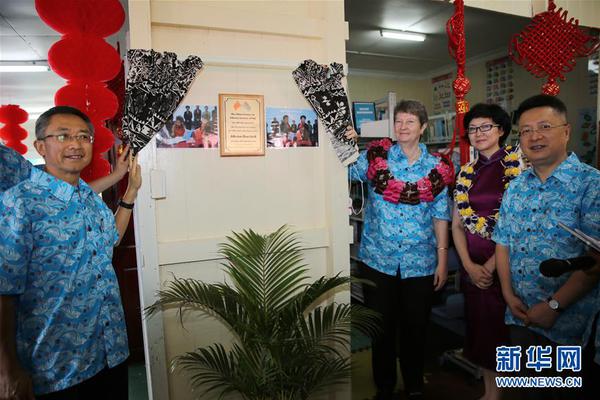
By J.K. YAMAMOTO, Rafu Staff Writer
“The Kindness of Color” by Janice Munemitsu hints at its message with “kindness” written in both Spanish (la amabilidad) and Japanese (優しさ?yasashisa) on the cover. The illustration shows hands helping a vine to grow past barbed wire.
The Sansei author describes the book as “the true story of two immigrant families who came to Southern California for better lives, only to face their own separate battles against racism in the midst of World War II. One family came by land from Mexico and the other by sea from Japan. Little did they expect their paths would meet and lead to justice and desegregation for all the schoolchildren of California in Mendez, et al. v. Westminster (1947) — seven years before Brown v. Board of Education (1954).
“Despite the discrimination and racism the Mendez and Munemitsu families encountered, there was one thing that helped them persevere. Acts of kindness by friends, neighbors and strangers encouraged their hearts and souls, opened paths to solutions, and created communities of support and kindness. This is the family story behind the case, highlighting the beauty and power of the ‘Kindness of Color’ that made the landmark case possible.
“The book tells the story of how racism against the Japanese Americans led to Tad Munemitsu leasing his family farm to Gonzalo and Felicitas Mendez during the forced evacuation and internment of 120,000 Japanese Americans during World War II. When the Mendez family moved to the Westminster farm, the Mendez children were denied entry to the ‘white’ school and forced to go to the ‘Mexican’ school with inferior academics. Racism by the government and school districts denied both families of their constitutional amendment freedoms and rights, but acts of kindness along the way created the path to justice.”

Munemitsu had to research her own family history as many of these events happened before she was born. “My father was only 20 and didn’t meet my mother until after the war. My father passed in 1997, my mother in 2010. My twin aunts, Akiko and Kazuko, were very young, 7-9 years old in camp. They are 86 this year.
“My parents talked openly about their experiences in camp during my childhood. As I grew older, I could better comprehend the losses and hurt that they endured. I also learned more as I went through documents, letters, and other things they saved as I went through their belongings after their death.
“I learned the details of the Mendez connection in 2002 when I first met Sylvia Mendez.”
The daughter of Gonzalo and Felicitas Mendez and a native of Orange County, Sylvia Mendez and her brothers Gonzalo and Jerome were denied admission to a public elementary school in 1943 because of their Mexican heritage. She later graduated from Cal State Los Angeles.
In the book’s foreword, Mendez wrote, “I have shared the story of Mendez, et al. v. Westminster … since my retirement from nursing in 1993. I travel the nation speaking at schools and events, and telling of the courage, perseverance, and kindness of those who helped to bring about this monumental change. Despite the fact that it set up the precedent for the desegregation of all California public schools … I have found that few have heard of the groundbreaking Mendez case and the families behind it.”
Munemitsu has also found that the case has “significantly less mentions in history” compared to Brown v. Board of Education. “Sylvia Mendez has spoken about this case to hundreds of schools and organizations for nearly 30 years since her retirement from a full-time nursing career. Sandra Robbie produced a 2003 award-winning documentary, “Mendez v. Westminster: For All the Children/Para Los Ninos,” which expanded visibility via PBS.
“In 2007, the US Postal Service issued a Mendez v. Westminster commemorative postage stamp and in 2011, Sylvia Mendez received the Presidential Medal of Freedom from President Barack Obama.”
The case was also highlighted as a Google Doodle in 2020.
A 2011 book for children, “Sylvia and Aki” by Winifred Conkling, was inspired by the story of the two families but is a fictional version.
“‘The Kindness of Color’is the first nonfiction, true story book that tells the whole story of the Japanese American internment and the school segregation racism that the Mendez and other Mexican American families faced,” Munemitsu said. “It is also the first book appropriate for middle and high schools as well as college and adult general population reading … “Many people who have read it have said they had no awareness of the internment or very little understanding of what the internment meant to the 120,000 Japanese Americans who suffered during World War II.”
“Kindness is being given a box of vegetables and fruit from a friend’s farm, and finding it filled with everlasting treasure,” said AAPI community advocate Tommy Dyo. “This captivating story twists and turns like fiction but all is real, factual, and historical. This will be required reading for all students to grasp the impact and importance of our interwoven history, and serendipitous connections all the while, changing hearts towards kindness.”
Munemitsu is familiar with her family’s agricultural heritage from first-hand experience. “I grew up on our family farm in Garden Grove. The Westminster farm of the 1930-40s was taken by eminent domain and is an elementary and a middle school of the Westminster School District.
“I worked on the farm — strawberries, green beans, tomatoes, asparagus, squash — until we sold the properties in Orange County. We later had citrus — oranges, lemons, and avocados — in North San Diego and Fresno County until a few years after my father’s death. I worked on the farm from age 5 through high school, and here and there in college.”
Munemitsu graduated from USC and Biola University in La Mirada.
Her paternal grandparents (Munemitsu) came from Kochi-ken and her maternal grandparents (Sasaki) came from Ehime-ken. Both prefectures are on Shikoku, one of Japan’s four main islands. Both sides of the family were incarcerated in the Poston camp in Arizona.
Munemitsu is hopeful that readers will be inspired by the way different racial/ethnic groups worked together decades ago. “Our story includes a Japanese American farmer, a Mexican American cantina owner turned farmer, a white American banker, and a Jewish American attorney who was fluent in Spanish. In addition, Black Americans Robert Carter and Thurgood Marshall were young attorneys working at the NAACP and wrote an amicus brief for the Mendez v. Westminster federal court appeal.
“In addition, my family was interned at Poston, Ariz. on the Native American reservation of the Colorado River Indian Tribes, which brings yet another aspect of the connection among Americans of different ethnicities.
“Whenever Sylvia Mendez and I speak about our story, we identify the numerous times friends and strangers of various ethnicities offered kindness that provided practical help and encouraging hope to our families as they faced racism.
“While circumstances outside of our personal control can result in hardship and obstruct justice, my book highlights how the kindness of many individuals through practical help and friendship gave our families hope in their struggle against racism, and helped them move toward a brighter future.
“The book cover (by May Angeles Brueckner) illustrates that many hands offer kindness, nurturing hope even amidst circumstances that try to thwart and divide us as people.”
One of the haiku at the beginning of the book reads, “Fences keep you out. / Fight for school for all children. / Hands offer kindness.”

Regarding future plans for the book, Munemitsu said, “I just launched this book in October 2021, so we have not had a chance for it to be used in curriculum. My hope is that educators will have the opportunity to review it this fall for inclusion in 2022 — the 75th anniversary of the Mendez v. Westminster case.”
For more information, visit thekindnessofcolor.com .
Pick up your signed copy of “The Kindness of Color” at rafumarket.com.
 Getty Images Confuses 'Star Wars' Actress with Olympic Figure Skater
Getty Images Confuses 'Star Wars' Actress with Olympic Figure Skater
 'Wordle' stats can now be tied to your New York Times account
'Wordle' stats can now be tied to your New York Times account
 How to have period sex
How to have period sex
 Samsung's new foldable phones to launch in August, leaker says
Samsung's new foldable phones to launch in August, leaker says
 Studio Ghibli Films in Hollywood, Santa Monica
Studio Ghibli Films in Hollywood, Santa Monica
 Small business trends on the rise: Ghost kitchens, plant delivery, handmade jewelry, and more
Small business trends on the rise: Ghost kitchens, plant delivery, handmade jewelry, and more
 Warner says bots helped make 'Zach Snyder's Justice League' happen
Warner says bots helped make 'Zach Snyder's Justice League' happen
 Omnipotence City is 'Thor: Love and Thunder's biggest wasted opportunity
Omnipotence City is 'Thor: Love and Thunder's biggest wasted opportunity
 Lobanjica считает переход киберспортсменов в Deadlock хорошей идеей
Lobanjica считает переход киберспортсменов в Deadlock хорошей идеей
 Google Wallet is now available in 39 countries
Google Wallet is now available in 39 countries
 Lecture, Exhibit on Akita Dogs at Japan Foundation
Lecture, Exhibit on Akita Dogs at Japan Foundation
 How to edit your Lock Screen in iOS 16
How to edit your Lock Screen in iOS 16
 Sims 4 update introduces new sexualities and romantic orientations to players
Sims 4 update introduces new sexualities and romantic orientations to players
 Here's why Netflix's 'Man vs Bee' is a TV series and not a film
Here's why Netflix's 'Man vs Bee' is a TV series and not a film
 Блогеры Мира танков оценили Кавказ
Блогеры Мира танков оценили Кавказ
 Spotify acquires Heardle, the music version of Wordle
Spotify acquires Heardle, the music version of Wordle
 Apple launches Music Sessions with exclusive live releases in Spatial Audio
Apple launches Music Sessions with exclusive live releases in Spatial Audio
 Warner says bots helped make 'Zach Snyder's Justice League' happen
Warner says bots helped make 'Zach Snyder's Justice League' happen
 Чемпионское интервью с GentlemaN — о развитии Standoff 2, победе на мейджоре и амбициях Virtus.pro
Чемпионское интервью с GentlemaN — о развитии Standoff 2, победе на мейджоре и амбициях Virtus.pro
 Apple M2 MacBook Air teardown reveals an odd detail
Apple M2 MacBook Air teardown reveals an odd detail
Best beginner knitting project video tutorials on YouTubeOK, I admit some TikTok recipes are actually kind of greatUK horrified by all the U.S. drug ads during Meghan Markle interviewMarjorie Taylor Greene's campaign site promotes debunked conspiracy about Ilhan OmarThe best memes from President Joe Biden's Inauguration DayTwitter honors Selma's Bloody Sunday on 56th anniversaryThe MyPillow guy tweeted his company's official Twitter account into a permanent banThe Weeknd's halftime show was full of bandaged dancers and the memes flooded inNew stimulus checks are coming and the internet is celebrating accordinglyChamp and Major Biden, our new First Dogs, have moved into the White House The best Black Friday deals on Fire Tablets start at just $39 Another OpenAI twist: Microsoft hires Sam Altman as AI team lead NYT's The Mini crossword answers for November 21 'The Ballad of Songbirds and Snakes' didn't need that President Snow voiceover Sam Altman and OpenAI: Here's everything you need to know about the drama Sam Altman breaks silence on OpenAI firing 180+ Black Friday gaming deals 2023: Nintendo Switch, Xbox, and more Meta shutters responsible AI team 15+ Black Friday 2023 Chromebook deals at Best Buy Massage gun Black Friday deal: $110 off TheraGun Prime in 2023
0.1427s , 11984.7578125 kb
Copyright © 2025 Powered by 【www.bogelmelayu.site video-lucah mira-minah-kesepian.58wymjgs.html】A True Story of Families Fighting Racism,Global Hot Topic Analysis